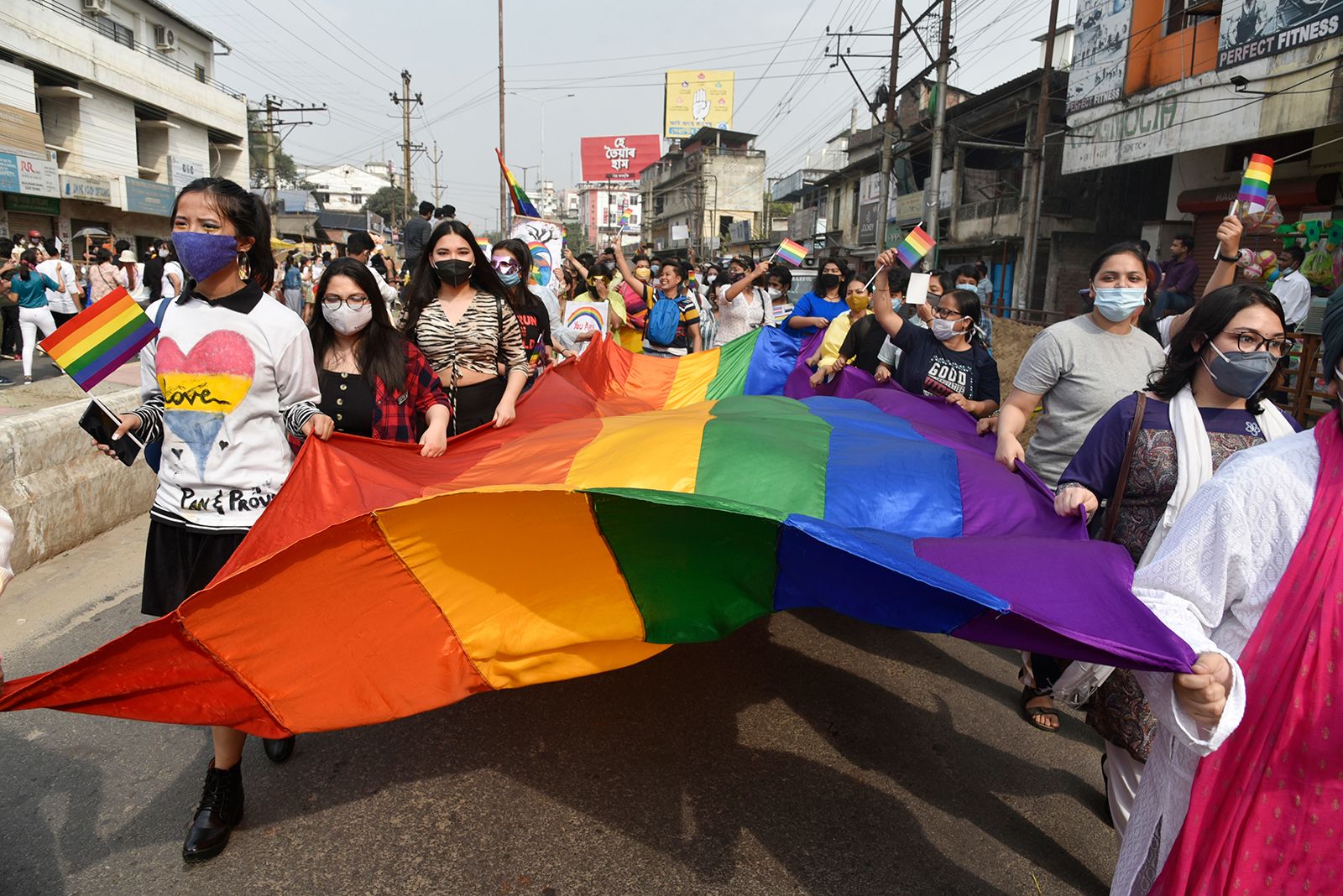A five-judge Constitution bench will decide upon legalizing same-sex marriages in India on April 18 and proceedings of the hearing will be streamed live as the issue of “seminal importance”, the Supreme Court said on Monday.
A bench comprising Chief Justice of India DY Chandrachud, Justice PS Narasimha, and Justice JB Pardiwala, which today heard the combined pleas seeking the legalization of the gay marriages under the Special Marriage Act in the country said that a constitution bench of five judges would on April 18 further decide the fate of such matrimonies.
Noting that the issue was of “seminal importance” and any decision on the same would have a huge impact on the Indian society and will impact entire social fabric as a whole, the apex court noted Article 145(3) mandates that such a matter of law, which requires interpreting the constitution, must be decided by a five-judge Constitution bench of the Supreme Court.
The Centre has opposed the pleas arguing that gay marriages are incompatible with the “Indian family unit” consisting of a husband, a wife and their children which inevitably presupposes a biological man as a ‘husband’, a biological woman as a ‘wife’ and the children born out of the wedlock reared by the biological man as father and the biological woman as mother.
The BJP-led central government, in its affidavit filed before the top court, said that the petitioners cannot claim a fundamental right for same-sex marriage to be recognised under Indian laws despite consensual gay being decriminalized in the Supreme Court’s landmark 2018 judgement.
The government further argued that legalizing gay marriages would wreck the delicate balance between personal laws and accepted societal values in the country. Law Minister Kiren Rijiju, Monday, noted that the institution of marriage is a matter of policy, even though doesn’t disturb personal freedom and activities of individuals.
Representing the Centre, Solicitor-General Tushar Mehta argued that giving legal status to gay marriages would trigger legal issues as marriage is a contract between a biological male and biological female in every major religion, not just among Hindus, but also in Islam.
The Centre’s council raised the legal status of adoption by a gay couple saying that the Parliament will have to examine will of the people and child’s and decide whether it can be raised in a such environment.
He said that the Parliament will have to factor in societal ethos while taking such a decision.
However, CJI Chandrachud retorted that the adopted child of a gay or lesbian couple does not have to be a gay or lesbian solicitor.
On January 6, the apex court had transferred and clubbed to itself, all such pleas pending in different high courts, including the Delhi High Court.
In its January 6 order, it had asked Advocate Arundhati Katju—representing the petitioners—and the Central government’s counsel, to prepare together a common compilation of the written submissions, documents and precedents on which reliance would be placed during the course of the hearing.
The petitioners’ counsel had requested the Supreme Court bench to transfer all such cases itself for an authoritative pronouncement on the issue and that the Centre can file its response in the top court.
Earlier, on January 3, the Supreme Court had said it would hear on January 6 the pleas seeking a transfer of petitions for recognition of same-sex marriages pending before the high courts to the top court.
The Supreme Court had in December last year sought the Centre’s response to two pleas seeking a transfer of the petitions pending in the Delhi High Court for directions to recognize same-sex marriages to itself.
Earlier on November 25 last year, the top court had sought the Centre’s response to separate pleas moved by two gay couples seeking enforcement of their right to marry and a direction to the authorities concerned to register their marriages under the Special Marriage Act.
A bench headed by CJI Chandrachud, who was also part of the Constitution bench that decriminalised consensual gay sex in its 2018 landmark judgement, issued a notice to the Centre in November last year, besides seeking Attorney General R Venkataramani’s assistance in dealing with the pleas.
The petitions have sought a direction that the right to marry a person of one’s choice be extended to LGBTQ (lesbian, gay, bisexual, transgender and queer) people as part of their fundamental right. One petition seeks a reinterpretation of the Special Marriage Act, 1954 in a gender-neutral manner where a person is not discriminated against due to his sexual orientation.
On September 2018, a five-judge Constitution bench of the Supreme Court, issued a landmark judgement wherein it decriminalized consensual gay sex among adults. It struck down a part of the British-era penal law under Article 377, on grounds that it violated the constitutional right to equality and dignity.
In its pathbreaking judgement, the apex court ruled that section 377 of the Indian Penal Code (IPC) that criminalised consensual gay sex was “irrational, indefensible and manifestly arbitrary”. The top court had said that the 158-year-old law had become an “odious weapon” to harass the LGBTQ community by subjecting its members to discrimination and unequal treatment.


 Latest world news10 hours ago
Latest world news10 hours ago
 Latest world news9 hours ago
Latest world news9 hours ago
 Cricket news10 hours ago
Cricket news10 hours ago
 India News6 hours ago
India News6 hours ago
 India News1 hour ago
India News1 hour ago















